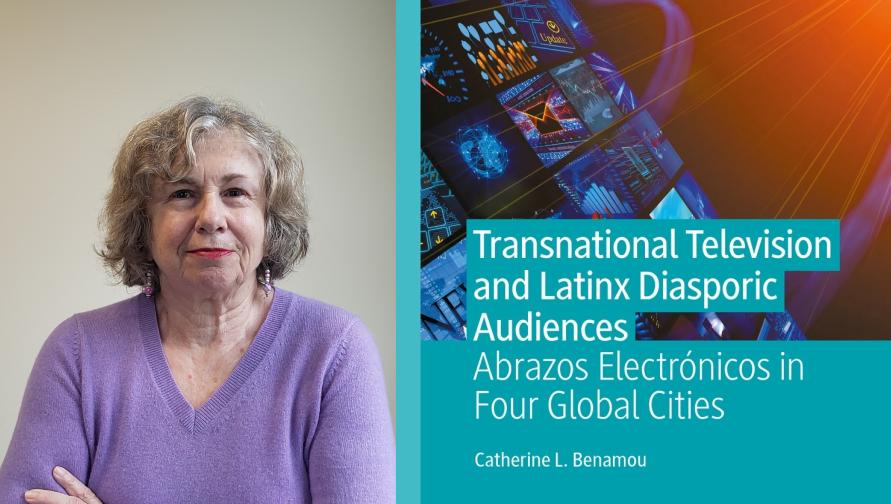
Associate Professor of Film and Media Studies Catherine Benamou recently had her book, Transnational Television and Latinx Diasporic Audiences: Abrazos Electrónicos in Four Global Cities, published by Springer Nature. In existence for over half a century, Spanish-language television has been treated as a “niche” medium, whereas the scale and diversity within it indicate otherwise. This book explores the reciprocal effects of transnational and local transmission of SLTV on Latinx diasporic communities in Detroit, Los Angeles, Miami, and Madrid between 2005 and 2018. The emphasis is on programming innovations and practices that help to foster viewer recognition and enfranchisement, and in doing so, model a pathway for community-responsive television.
More about Transnational Television and Latinx Diasporic Audiences: Abrazos Electrónicos in Four Global Cities from Springer Nature: This book is based on a mixed-method, longitudinal study of the transmission, production, and reception of Spanish- and Portuguese-language television in four global cities with expanding Latinx diasporic populations. The author tracks and analyzes the production practices of Spanish-language broadcasters, the highlights of news and cultural affairs coverage, changes in the shooting locations and sociocultural discourses of telenovelas (both imported from Latin America and domestically produced), the presence of SLTV in the national political sphere, and the modes of media access and opinions of over 400 viewers in Detroit, Los Angeles, Miami, and Madrid. The possibilities created by SLTV and PLTV for achieving a sense of enfranchisement are explored.
Catherine Benamou is an Associate Professor of Film and Media Studies. She is the author of essays on Latin American women’s cinema, inter-American documentaries, and transnational television, as well as a book on Orson Welles’s unfinished film, It’s All True.
